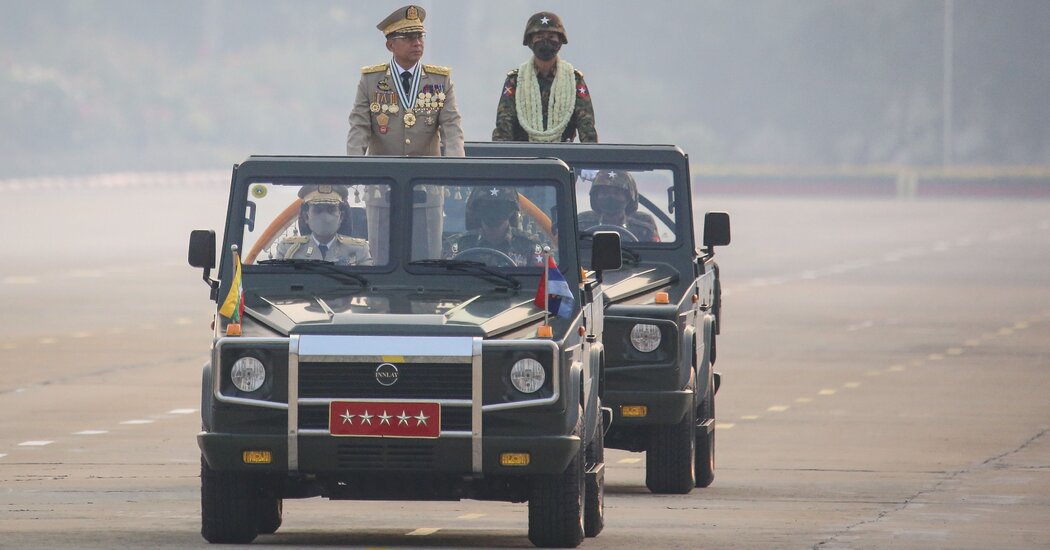
The family’s initial fortune came from jute, a natural fiber that is used to make rope and twine. The jute mill was nationalized during the military’s disastrous venture into socialism, after its first coup in 1962.
Burma, once lauded for its fine schools and polyglot cosmopolitanism, sank into penury. The ruling junta renamed the country Myanmar.
Mr. Jonathan Kyaw Thaung’s father was sent to Northern Ireland, where he escaped Myanmar’s privations. His siblings scattered to Thailand, Singapore, the United States and Britain. The family’s graceful villa in Yangon moldered, as did the rest of the country.
But even as many of them headed abroad, the family remained connected to Myanmar and traveled there to do business. Their path back was eased by the extended family tree, which included high-ranking Tatmadaw officers, cabinet ministers and confidants of junta chiefs.
A cousin married U Zeyar Aung, an urbane, English-speaking general who led the Northern Command and the 88th Light Infantry Division, both of which the United Nations has tied to decades of war crimes against Myanmar’s own people. He later was the railway minister, then the energy minister and subsequently led the national investment commission, over the time the Kyaw Thaungs were vying for military contracts.
Myanmar’s patronage networks are a tangle of roots that bind family trees. Generals’ children tend to marry within tight circles, perhaps to other military progeny or the offspring of business cronies.
As the Tatmadaw began loosening control over the economy, engaging in a fire sale of assets that had once been the military’s fief, that elite class of the well-connected swooped in to profit. Mr. Jonathan Kyaw Thaung, whose mother is Irish, returned to Myanmar, along with siblings and cousins who had also been raised overseas.




